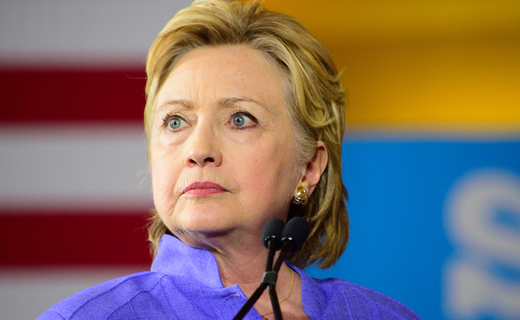Politics
NEW: Clinton Campaign Contractor Withheld 1,500 Documents Requested By Durham

Fusion GPS, a contractor that worked for Hillary Clinton’s 2016 campaign, reportedly withheld over 1,500 documents from Special Counsel John Durham. These documents were sought during Durham’s investigation into the origins of the FBI’s Russia probe. Fusion GPS cited attorney-client privilege in their refusal to hand over the documents, a claim that has been contested by many legal experts.
According to the initial report, Durham did not take legal action to acquire the documents.
On Friday, Paul Sperry, a senior reporter for Real Clear Investigations, broke the news on Twitter, stating, “BREAKING: Hillary Clinton campaign contractor Fusion GPS held back more than 1,500 DOCUMENTS sought by Special Counsel Durham, claiming attorney-client privilege, and Durham didn’t sue for the evidence.”
BREAKING: Hillary Clinton campaign contractor Fusion GPS held back more than 1,500 DOCUMENTS sought by Special Counsel Durham, claiming attorney-client privilege, and Durham didn't sue for the evidence. (FEC ruled against Clinton campaign for hiding behind a related legal claim.)
— Paul Sperry (@paulsperry_) June 2, 2023
The news raises concerns about the extent of the Clinton campaign’s involvement in the Russia probe and their efforts to withhold potentially incriminating information.
Interestingly, despite the refusal of Fusion GPS to cooperate, Durham chose not to sue for the evidence, a move that has raised eyebrows in the legal and political communities. It is noteworthy to mention that the Federal Election Commission (FEC) has previously ruled against the Clinton campaign for hiding behind a similar legal claim, adding weight to the questions surrounding the current situation.
In a separate tweet, Sperry reported that ex-CIA analyst Nellie Ohr was responsible for creating a list of Trump associates that were targeted for investigation. The list, which was given to Clinton lawyers Michael Sussmann and Rodney Joffe, included notable figures such as Paul Manafort, Carter Page, and Roger Stone, along with their families.
BREAKING: Ex-CIA analyst Nellie Ohr came up with the list of Trump associates Hillary lawyer Sussmann and Joffe tasked Pentagon computer contractors to run searches of non-public Internet data against. The list included Paul MANAFORT, Carter PAGE and Roger STONE & their families
— Paul Sperry (@paulsperry_) June 2, 2023
Further adding to the controversy, Sperry pointed out that many of Durham’s prosecutors were Republicans who had previously supported Mitt Romney and John McCain. He suggested that their lack of aggression in pursuing FBI and DOJ officials who targeted Trump, while focusing on Democratic activists, might be explained by their own political leanings. This conjecture, if proven true, could significantly impact the credibility of the investigation and the trust placed in such judicial processes.
DEVELOPING: FEC records show virtually all of Durham's prosecutors were Romney/McCain Republicans, which means they likely had little sympathy for Trump. Explains the lack of aggression going after FBI/DOJ officials who targeted Trump and the focus on Democratic activists instead
— Paul Sperry (@paulsperry_) June 2, 2023
On May 15, the long-awaited report from Special Counsel John Durham on the origins of the Trump-Russia investigation, also known as “Operation Crossfire Hurricane,” was released. Durham had concluded that there was no concrete evidence of collusion at the onset of the investigation. The report further stated that there was no evidence in FBI records that any Trump campaign official had been in contact with Russian intelligence officials during the campaign.
It also confirmed that the FBI had failed to obtain a FISA warrant to spy on George Papadopoulos, a Trump campaign adviser, and could not corroborate any allegations from the Steele dossier. The report suggested that top Obama administration members, including then-Vice President Joe Biden, had been briefed on a purported plan by Hillary Clinton to create a false narrative linking Trump to Russia in 2016. Following the release, Rep. Jim Jordan requested testimony from Durham.
The withholding of documents by Fusion GPS, the targeting of Trump associates, and the potential bias within Durham’s team all point to a complex web of political maneuvering and obfuscation. It is clear that this case continues to shed light on the murky intersection of politics and justice in our modern era. Whether these recent developments will lead to a reevaluation of the FBI’s Russia probe remains to be seen.

